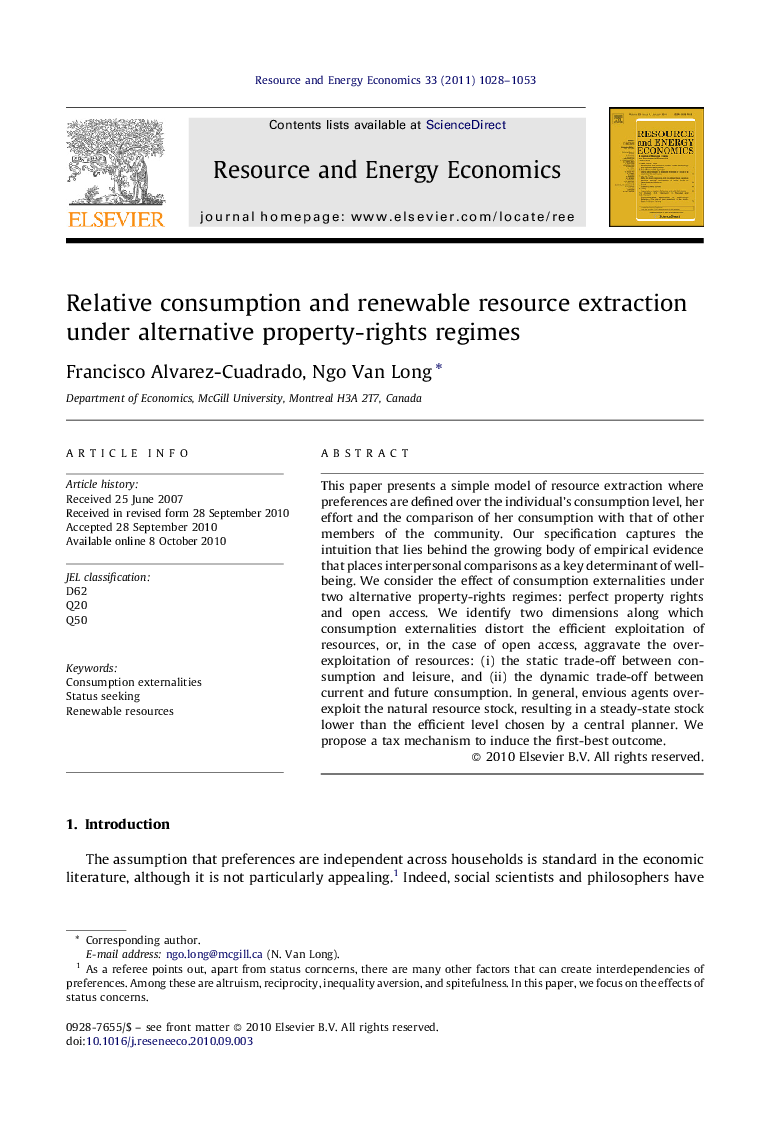| Article ID | Journal | Published Year | Pages | File Type |
|---|---|---|---|---|
| 985485 | Resource and Energy Economics | 2011 | 26 Pages |
This paper presents a simple model of resource extraction where preferences are defined over the individual’s consumption level, her effort and the comparison of her consumption with that of other members of the community. Our specification captures the intuition that lies behind the growing body of empirical evidence that places interpersonal comparisons as a key determinant of well-being. We consider the effect of consumption externalities under two alternative property-rights regimes: perfect property rights and open access. We identify two dimensions along which consumption externalities distort the efficient exploitation of resources, or, in the case of open access, aggravate the over-exploitation of resources: (i) the static trade-off between consumption and leisure, and (ii) the dynamic trade-off between current and future consumption. In general, envious agents over-exploit the natural resource stock, resulting in a steady-state stock lower than the efficient level chosen by a central planner. We propose a tax mechanism to induce the first-best outcome.
